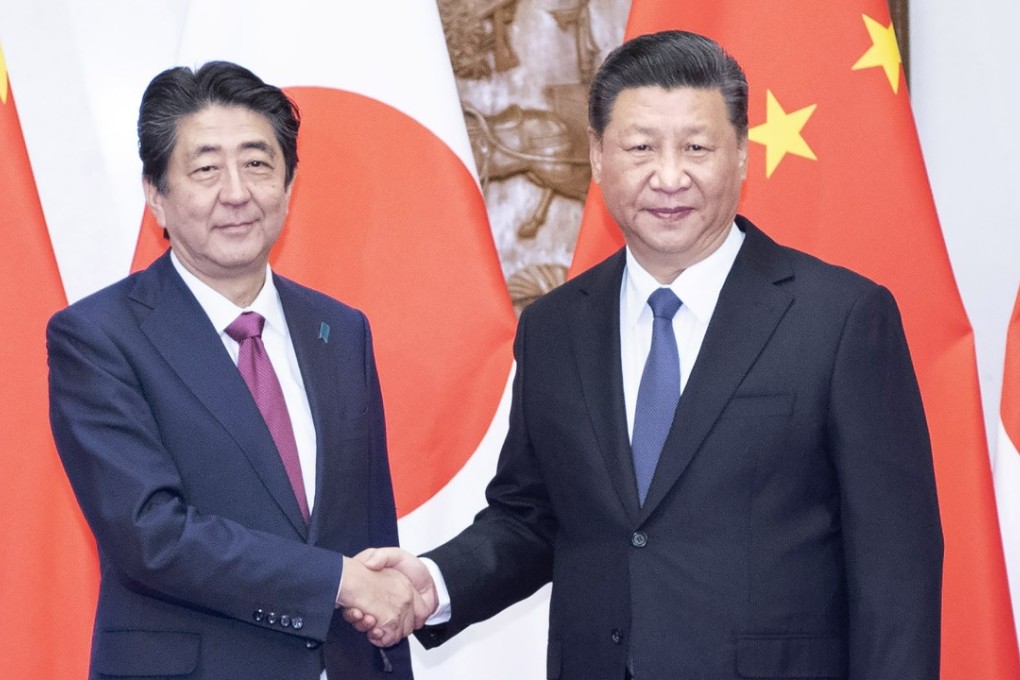Opinion | Improving ties serves the interests of China and Japan
- It is the right strategy to smooth relations and create an environment to eventually deal with long-standing issues behind animosity and mistrust

The message from the first trip to Beijing by a Japanese leader in seven years was clear: the world’s second- and third-biggest economies need to cooperate, not compete. President Xi Jinping’s and Premier Li Keqiang’s meetings with Prime Minister Shinzo Abe confirmed that relations between China and Japan were no longer frosty and there was every desire to work together for mutual benefit. On the 40th anniversary of a peace and friendship treaty, the pledges made for stability and agreements struck on trade and investment were fitting. It is the right strategy to smooth ties and create an environment to eventually deal with long-standing issues behind animosity and mistrust.
Xi said after a meeting and dinner with Abe that relations between the countries were back on the right track. A wide array of bilateral agreements were signed during the visit with pledges to increase cooperation in areas including finance, trade and innovation. Among them was a US$29 billion currency swap arrangement aimed at enhancing the nations’ financial stability. Companies and official bodies signed more than 50 agreements to work together on infrastructure development in Asia, proof of a Japanese commitment to partner on the “Belt and Road Initiative”.
Beijing-Tokyo ties at ‘historic turning point’ - but can goodwill last?
China and Japan have been drawn together by the uncertainty of relations with the United States. The trade war initiated by US President Donald Trump is weighing heavily on the Chinese economy, pushing Beijing to strengthen links with other trading and investment partners and Tokyo is a natural choice. Japanese hi-tech firms that provide parts for affected Chinese products have suffered collateral damage and Japan has been threatened by the US with penalties. Trump’s protectionist policies that have included withdrawal from multilateral accords has prompted the sides to pledge to work together to promote international institutions and free trade. But China’s rise has also unnerved Japan and the growing conflict between Beijing and Washington is especially worrying for Tokyo. Abe’s nationalist tendencies have deepened mistrust for Chinese, worsening tensions over wartime grievances, geopolitical rivalry and sovereignty claims. Japan’s diplomatic and military ties to the US also heavily impact the shape of relations with neighbours, requiring careful balancing.
Much wisdom and effort is needed for China and Japan to overcome their differences. They have to avoid being a threat to each other and better communicate and cooperate. Xi will visit Japan next year and further boost ties. The talks in Beijing have set the right tone and moved ties in the right direction; as Xi said, “a healthy relationship between China and Japan serves the basic interests of both countries”.
